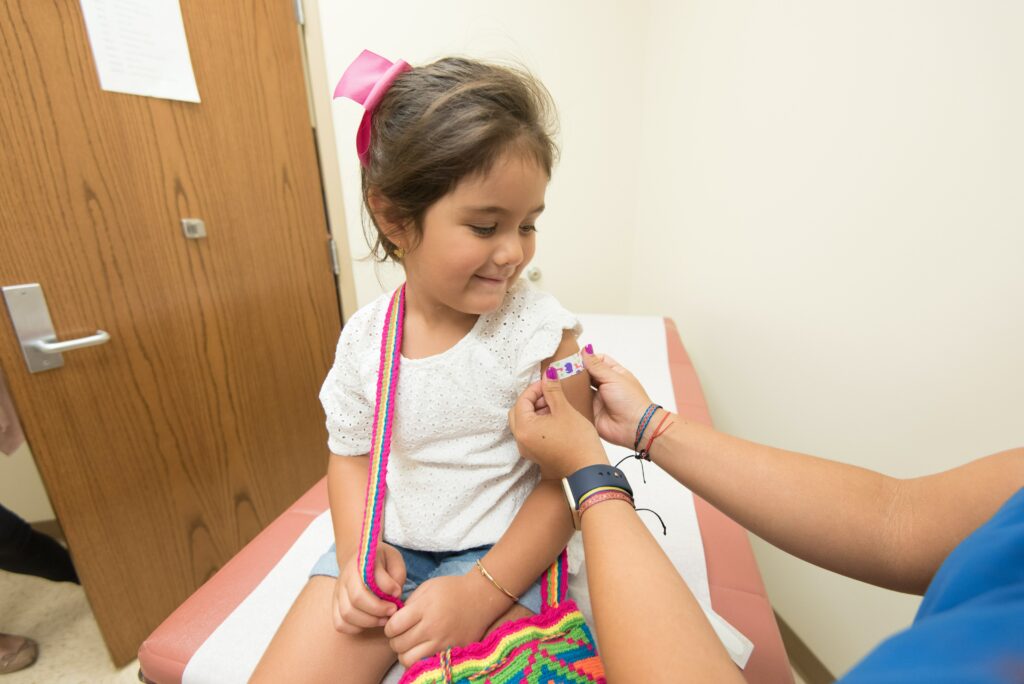Wisconsin Sees Surge In Whooping Cough
1,887 confirmed cases of pertussis. Health officials urge people to get vaccinated.
Cases of pertussis — “whooping cough” — have surged in Wisconsin this year, prompting public health officials to reiterate the importance of vaccination and prompt attention to signs of illness.
Wisconsin has reported 1,887 confirmed cases of pertussis as of Nov. 22 this year, according to the state Department of Health Services (DHS) — compared with 51 for all of 2023, and more than three times the state’s last peak year in 2019.
“It’s not unusual to see a spike in cases in any given year, but this is a significant jump,” DHS spokesperson Jennifer Miller said Tuesday in an email message. “We are encouraging people to get pertussis vaccines and to use good hygiene habits to avoid catching and spreading the illness.”
Pertussis is a bacterial upper respiratory illness that spreads easily. It tends to start with a runny nose and a scratchy throat, but after about a week patients develop a persistent cough that can last for weeks.
Pertussis case counts often run in cycles, “so we’ll have years with high case counts and years with fairly low case counts,” Miller said.
In Dane County alone, there have been 281 cases through Monday, Nov. 25, Public Health Madison & Dane County (PHMDC) reported Tuesday. Since 2000, Dane County has reported two peak years for the respiratory illness, with 436 cases for all of 2004 and 302 cases for all of 2012.
By contrast, the county has had case counts as low as 7 for all of 2018, 13 for all of 2019, 0 for 2021 and 2022 and 4 for 2023, according to PHMDC records.
“With the holidays approaching, many families will be traveling and gathering with friends and family,” said Amanda Kita-Yarbro, the county health department’s public health epidemiologist. “This could increase the spread of all respiratory illness, including pertussis, which has been primarily impacting teenagers and college-aged people in recent months.”
Wisconsin’s last peak year for pertussis infections was 2019, when there were 535 cases reported across the state. This year both the state and the county first reported a sharply higher number of cases in July.
Ajay Sethi, faculty director of the Masters in Public Health program at the UW-Madison School of Medicine and Public Health, said Tuesday several factors underlie this year’s surge in cases.
One is lagging rates in pertussis vaccinations. “Under-immunization … was the main reason for our vulnerability for the outbreak we have had this year,” Sethi told the Wisconsin Examiner in an email message.
While pertussis vaccines are available and recommended for people of any age, in October, the Centers for Disease Control and Prevention reported a downturn in childhood vaccination nationwide and particularly in Wisconsin.
According to the report, the rate of childhood vaccination with the DtaP shot — providing combined protection from diphtheria, tetanus and pertussis — was 85.7% for the 2023-24 school year in Wisconsin — second to lowest among all states. The CDC has set a target for vaccination rates of at least 95% for children entering kindergarten.
The CDC reported that 8% of Wisconsin kindergarteners were granted an exemption from the state’s vaccine requirements overall.
Sethi said the bacteria responsible for pertussis is highly contagious and difficult to stop from spreading. Adults who become infected “may think they just have a cold, so they don’t seek health care immediately, if at all, and spread it to other people (who are likely not up to date on their vaccination),” he added.
There isn’t a rapid test for pertussis, and test results take a couple of days to confirm a diagnosis, Sethi said. Physicians “may rightfully be hesitant to prescribe antibiotics without confirming the cause,” he added.
In July, Dr. James Conway, a UW Health specialist in childhood infectious diseases, told the Wisconsin Examiner that the signature “whoop” coughing sound that gives pertussis its nickname is generally confined to young children, who are also the most vulnerable to the illness.
People of any age can become infected, however, and public health specialists are advising people to take precautions to help prevent its spread, especially to children. Those precautions include getting vaccinated for pertussis, washing hands and covering coughs and sneezes.
Pertussis information sources
- Wisconsin Department of Health Services: Pertussis immunization web page
- Public Health Madison & Dane County: Pertussis fact sheet
- PHMDC: immunization information
- Wisconsin Immunization Registry, where patients can view their own immunization history
Public health providers urge vaccination as pertussis surges in Wisconsin was originally published by Wisconsin Examiner.





















